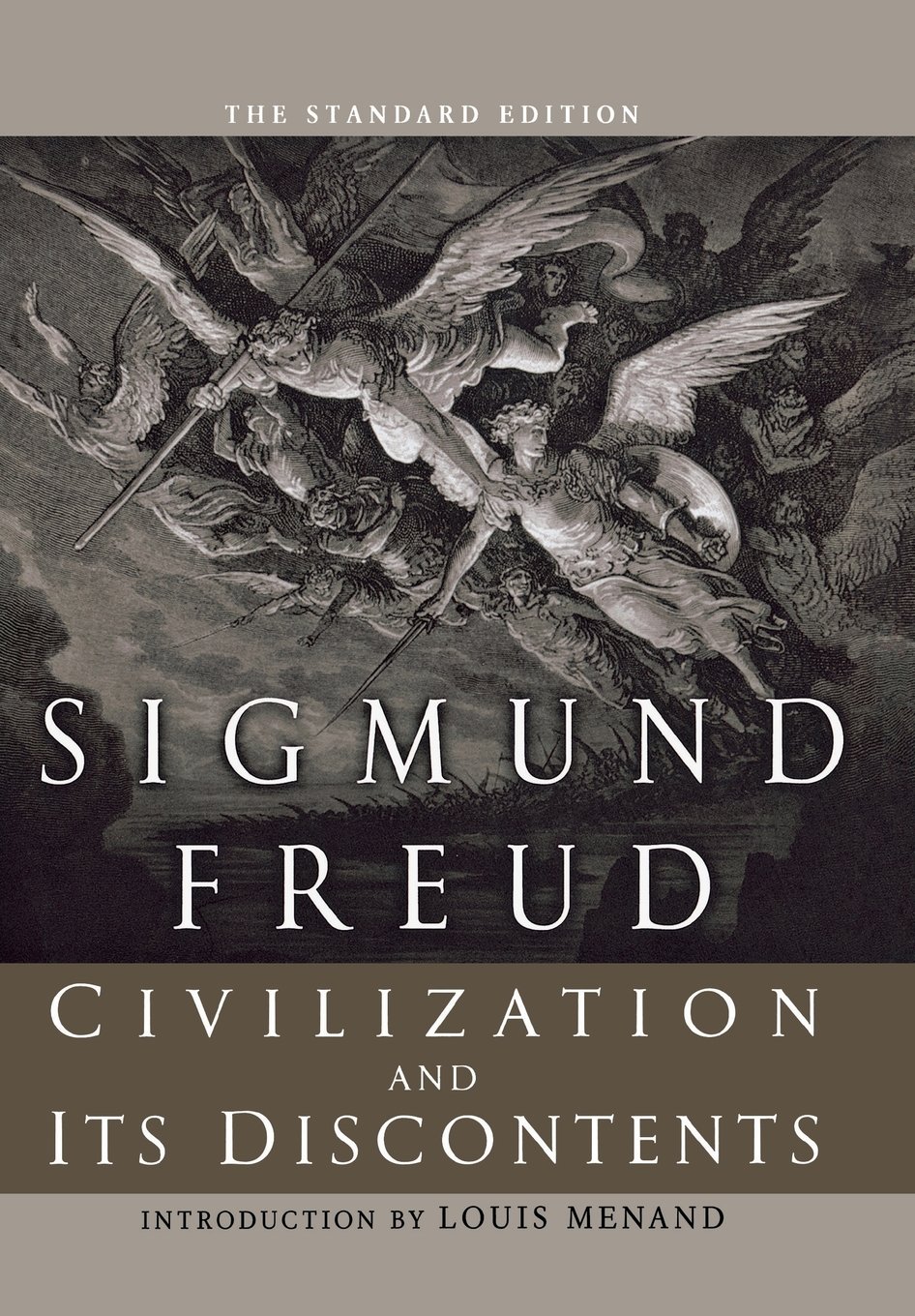Newly released
This book is new and will be uploaded as soon as it becomes available to us and if we secure the necessary publishing rights.

Civilization and Its Discontents Book PDF
(0)
Author:
Sigmund FreudNumber Of Reads:
107
Language:
English
Category:
Social sciencesSection:
Pages:
116
Quality:
excellent
Views:
1216
Quate
Review
Save
Share
Book Description
During the summer of 1929, Freud worked on what became this seminal volume of twentieth-century thought.
It stands as a brilliant summary of the views on culture from a psychoanalytic perspective that he had been developing since the turn of the century. It is both witness and tribute to the late theory of mind―the so-called structural theory, with its stress on aggression, indeed the death drive, as the pitiless adversary of eros.
Civilization and Its Discontents is one of the last of Freud's books, written in the decade before his death and first published in German in 1929. In it he states his views on the broad question of man's place in the world, a place Freud defines in terms of ceaseless conflict between the individual's quest for freedom and society's demand for conformity.
Freud's theme is that what works for civilization doesn't necessarily work for man. Man, by nature aggressive and egotistical, seeks self-satisfaction. But culture inhibits his instinctual drives. The result is a pervasive and familiar guilt.
Of the various English translations of Freud's major works to appear in his lifetime, only one was authorized by Freud himself: The Standard Edition of the Complete Psychological Works of Sigmund Freud under the general editorship of James Strachey.
Freud approved the overall editorial plan, specific renderings of key words and phrases, and the addition of valuable notes, from bibliographical and explanatory. Many of the translations were done by Strachey himself; the rest were prepared under his supervision. The result was to place the Standard Edition in a position of unquestioned supremacy over all other existing versions.
Sigmund Freud
He is an Austrian doctor of Jewish origin, who specialized in studying neuroscience and a free thinker. It considered the founder of psychoanalysis. His real name was Sigismund Shlomo Freud (May 6, 1856 – September 23, 1939), an Austrian neurologist who founded the school of psychoanalysis and modern psychology. Freud is best known for his theories of the mind and the unconscious, the defense mechanism of repression and for creating the clinical practice of psychoanalysis for the treatment of mental illness through dialogue between a patient and a psychoanalyst. He is also known for his technique of redefining sexual desire and the primary motivational energy of human life, as well as for therapeutic techniques, including the use of the method of association and psychotherapy episodes, his theory of transformation in the therapeutic relationship, and the interpretation of dreams as sources of insight into subconscious desires. While many of Freud's ideas were bypassed, or modified by neoconservatives and "Freudians" at the end of the twentieth century and with the progress in the field of psychology many flaws began to appear in many of his theories, yet Freud's methods and ideas remain important in Histories of clinical and psychodynamic methods are in academia, and his ideas continue to influence some of the humanities and social sciences. Sigmund Freud was born on May 6, 1856, into a Jewish family in Pribor, in the then Moravian region of the Austrian Empire, which is now part of the Czech Republic. His father Jacob gave birth to him when he was 41, a wool merchant, and had two children from a previous marriage. . His mother, Amali (born Nathanson) was the third wife of his father Jacob. Freud was the first of eight siblings, and due to his early intelligence, his parents preferred him to the rest of his brothers in the early stages of his childhood and sacrificed everything to give him a sound education despite the poverty that the family suffered from due to the economic crisis at the time. In 1857, Freud's father lost his business, and the family moved to Leipzig before settling in Vienna. In 1865 Sigmund entered a prominent school - the Communal Real Gymnasium in the predominantly Jewish district of Leopolstadter - at the time. Freud was an outstanding student and graduated at Matura in 1873 with honors. Freud had planned to study law, but instead joined the Medical Faculty of the University of Vienna to study under Darwinian Professor Karl Claus. At the time, the life of the eel was still unknown, which led Freud to spend four weeks at an Austrian animal research center in Trieste dissecting hundreds of sea eels in an unsuccessful search for their male sexual organs.
Book Currently Unavailable
This book is currently unavailable for publication. We obtained it under a Creative Commons license, but the author or publisher has not granted permission to publish it.
Rate Now
5 Stars
4 Stars
3 Stars
2 Stars
1 Stars
Civilization and Its Discontents Quotes
Top Rated
Latest
Quate
Be the first to leave a quote and earn 10 points
instead of 3
Comments
Be the first to leave a comment and earn 5 points
instead of 3